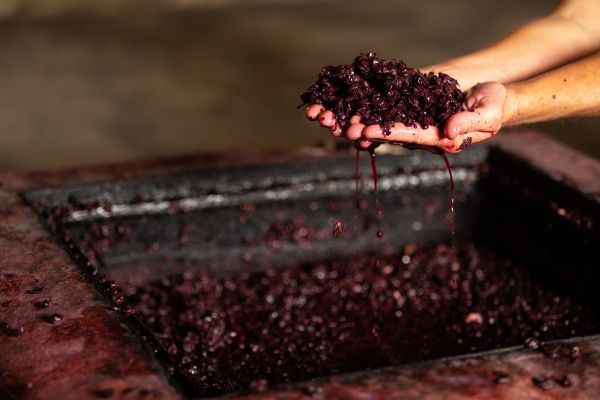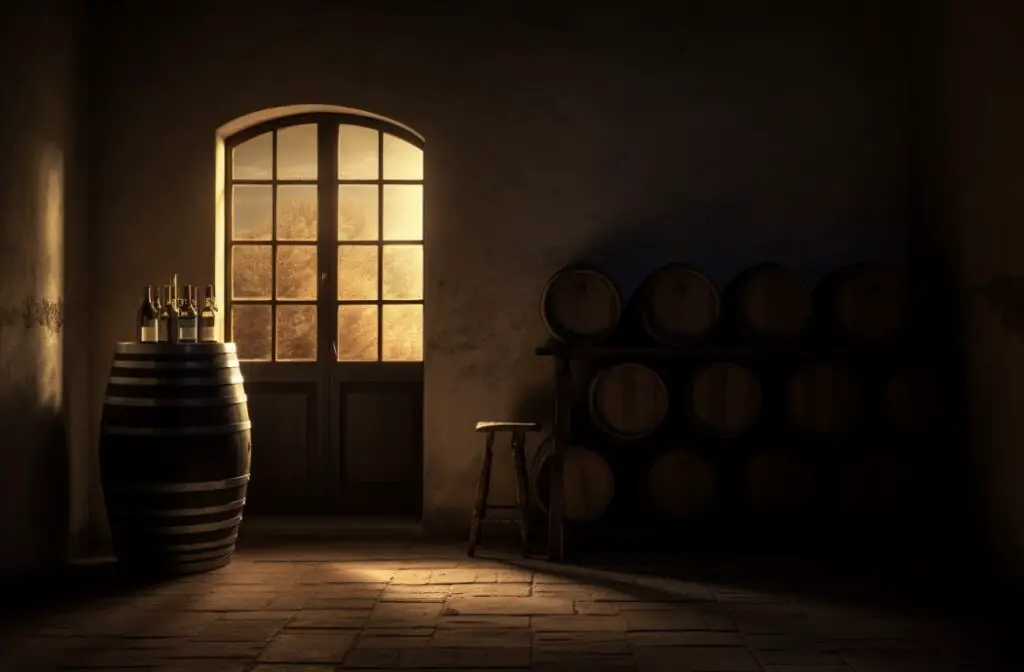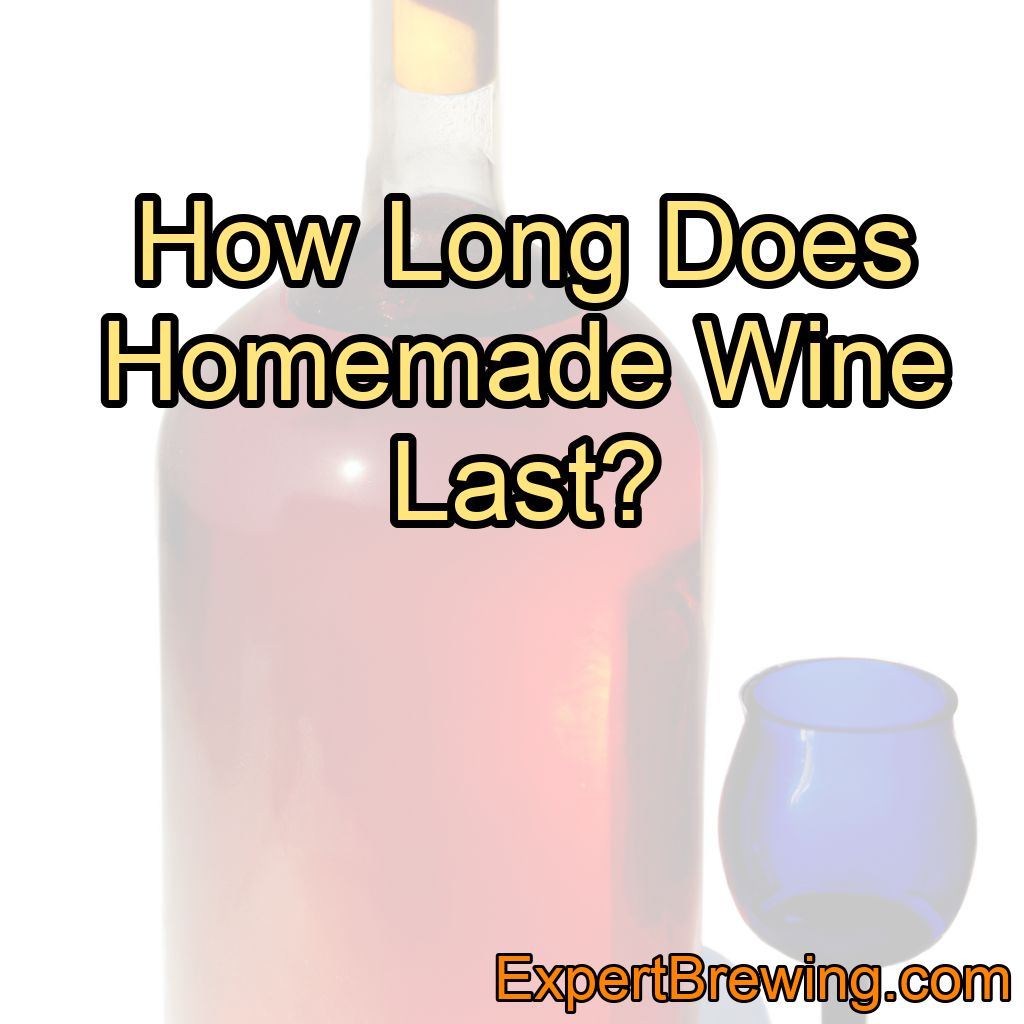As a seasoned home brewer, one question that I often get asked is “how long does homemade wine last?” The answer to this question is not as straightforward as it might seem.
The longevity of homemade wine greatly depends on a variety of factors including the type of wine, the quality of the ingredients used, the winemaking process, storage conditions, and whether or not the bottle has been opened.
Generally speaking, a well-made homemade wine stored in a proper corked bottle under ideal conditions can last for several years, and might even improve with age.
If the wine has a low alcohol percentage (<10%), is subjected to oxygen (not entirely full bottles), or stored in a warm, bright, location, they may only last a year or so before eventually turning sour or bland in their taste.
However, my personal experience and research have led me to understand this subject in more depth, and in this blog post, I will break down the different factors that influence the shelf life of homemade wine:
1. The Type of Wine
Red Wine
Red wines typically have a longer shelf life than white wines. This is due to the higher tannin content in red wines, which acts as a natural preservative. On average, a homemade red wine can last anywhere from 2 to 10 years.
White Wine
White wines, on the other hand, are more delicate and have a shorter shelf life. They typically last between 1 to 3 years. However, some types of white wine like Chardonnay, which has a higher acidity, can last up to 5 years.
2. The Quality of Ingredients
The shelf life of your homemade wine is heavily dependent on the quality of the ingredients you use.

The better the quality of your grapes and other ingredients, the longer your wine is likely to last. Poor quality grapes or a high concentration of impurities can lead to off-flavors and premature aging of the wine.
3. The Winemaking Process
The process of making wine at home can also impact its longevity. Proper sanitation is crucial to prevent unwanted bacteria and yeasts from spoiling the wine.
The way you handle the fermentation process, the type of yeast you use, and the temperature at which you ferment the wine can all affect how long the wine lasts.
4. Storage Conditions
How you store your homemade wine plays a significant role in its shelf life. Wine should be stored in a cool, dark place with a consistent temperature.

Fluctuations in temperature and exposure to light can cause the wine to deteriorate faster. It’s also important to store wine bottles on their sides to keep the cork moist and prevent it from drying out.
5. If The Bottle Has Been Opened
Once a bottle of wine has been opened, its shelf life dramatically decreases due to exposure to oxygen.
An opened bottle of homemade wine, on average, can last for about a week if it’s re-corked and stored in the refrigerator.
However, it’s best to consume the wine within a few days of opening for optimal taste.
Conclusion
So, how long does homemade wine last? It’s clear that the answer depends on a variety of factors, from the type of wine and quality of ingredients used to the winemaking process and storage conditions.
On average, a well-made homemade wine stored properly can last for several years. However, once opened, it’s best to consume the wine within a week.
To summarize, here are 10 key facts about the shelf life of homemade wine:
1. Red wines typically last longer than white wines due to their higher tannin content.
2. White wines usually last between 1-3 years, with some exceptions.
3. The quality of the ingredients used to make the wine can significantly affect its shelf life.
4. Proper sanitation during the winemaking process can help to extend the shelf life of the wine.
5. The fermentation process, type of yeast used, and fermentation temperature can all impact the longevity of the wine.
6. Wine should be stored in a cool, dark place with a consistent temperature.
7. Fluctuations in temperature and exposure to light can cause the wine to deteriorate faster.
8. Wine bottles should be stored on their sides to keep the cork moist.
9. Once opened, a bottle of homemade wine can last for about a week if properly stored.
10. It’s best to consume opened wine within a few days for optimal taste.
From my personal experience, I’ve found that taking the time to ensure high-quality ingredients, a clean winemaking process, and optimal storage conditions can significantly extend the shelf life of homemade wine. However, even with the best practices in place, it’s always a good idea to enjoy your homemade wine sooner rather than later to appreciate its full flavor and aroma. After all, wine is meant to be enjoyed!
FAQs
Does homemade wine ever go bad?
Yes, homemade wine can go bad if not properly stored or if it becomes contaminated. Factors such as exposure to air, excessive heat, or the growth of harmful bacteria or fungi can cause the wine to spoil. It’s important to store homemade wine in a cool, dark place and ensure that the containers are airtight to prevent spoilage.
Can you ferment wine too long?
Yes, it is possible to ferment wine for too long. Over-fermentation can lead to undesirable flavors and aromas, making the wine taste unpleasant. The fermentation process should be carefully monitored to ensure that it stops at the desired point, balancing the flavors and achieving the desired level of sweetness or dryness.
Can you drink 20 year old homemade wine?
Yes, you can drink homemade wine that is 20 years old.
How can you tell if homemade wine has gone bad?
You can determine if homemade wine has gone bad by using your senses. Look for signs such as an off-putting smell, a vinegar-like aroma, or a strong musty odor. Check for any visible mold, cloudiness, or sediment in the wine. Taste the wine to see if it has an unpleasant or sour flavor. If any of these indications are present, it’s likely that the homemade wine has spoiled.
What makes homemade wine go bad?
Homemade wine can go bad due to various factors. Exposure to oxygen can lead to oxidation, causing the wine to develop a vinegar-like taste. Contamination by bacteria or wild yeast can result in off-flavors and spoilage. Inadequate sterilization of equipment or unsanitary conditions during fermentation can also contribute to spoilage. Additionally, improper storage conditions, such as temperature fluctuations or exposure to light, can negatively impact the wine’s quality and taste.
Does homemade wine improve with age?
Yes, homemade wine can improve with age.




